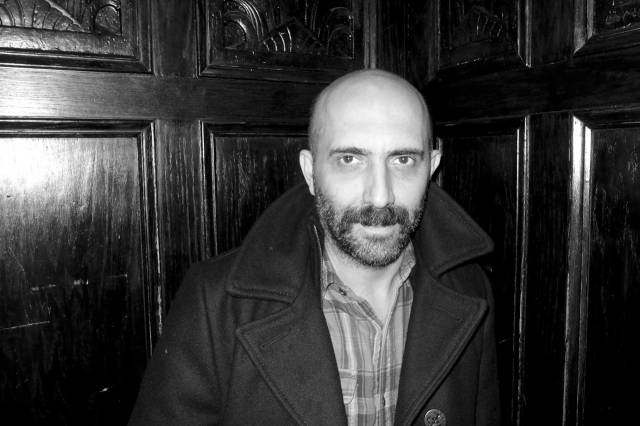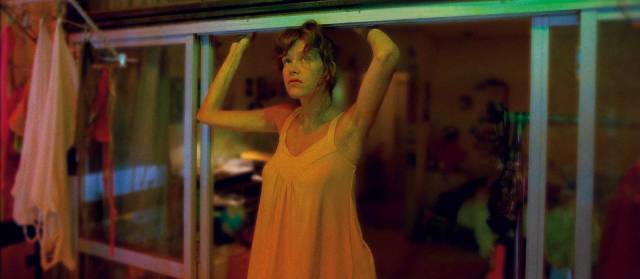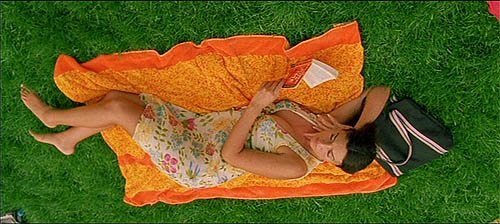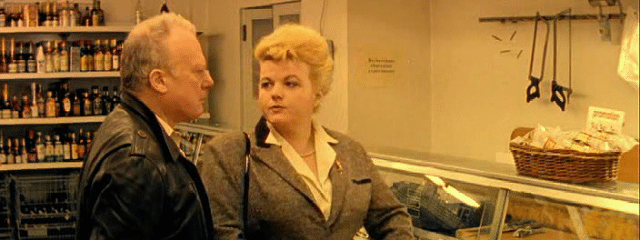
 Gaspar Noé was born in Argentina in 1963 and moved to France when he was eleven. Regarded as a tremendously original and expressive filmmaker, like many a good artist, his work has caused some controversy, largely for its violence. But Noé is a master of streamlining violence, letting it loose in a controlled flow, using artful techniques in sound, sight and story to amplify, augment, and distort the violence, so it leads to films that are at the peak of aesthetic brilliance and Dionysian abandon.
Gaspar Noé was born in Argentina in 1963 and moved to France when he was eleven. Regarded as a tremendously original and expressive filmmaker, like many a good artist, his work has caused some controversy, largely for its violence. But Noé is a master of streamlining violence, letting it loose in a controlled flow, using artful techniques in sound, sight and story to amplify, augment, and distort the violence, so it leads to films that are at the peak of aesthetic brilliance and Dionysian abandon.
The use of aesthetics in such a high degree defaults Noé's work into the art-house/experimental category. But even though they are experimental, they are not totally avant-garde. His films do have straightforward narratives—the one and only relaxing feature of the work is that the stories can be easily followed. We know what is “going on”—usually. The most important part of Noé's work is that his films become vehicles for narratives that are usually neglected. Narratives not just of extreme violence and rape but of a much deeper significance. Only by stomping out the light of human life like garbage and aligning our sights to this level of sensitization can we truly see— this light is all we have.
 Enter the Void (2009) - What happens when we die? The Ultimate Question. Told backwards, a young drug-dealer named Oscar (Nathaniel Brown) is accidentally shot in a bar called The Void, but after this his death, his soul continues to perceive and transmit to the world of the living; he has unfinished business. Before he died he consumed copious amounts of drugs while discussing the spiritual side to this practice. He studies The Tibetan Book of the Dead, the spirit world, and reincarnation, so his soul knows what to do, how to find its peace. This trip is most of the film. Cinematographer Benoît Debie (Spring Breakers) shoots unorthodox and disorienting positions; the camera shots themselves are both elements of confusion and allure, and are the most important element to this film truly working. Enter the Void cranks up the hallucination factor and attempts to answer the Ultimate Question, and pulls it off too with respectable zeal.
Enter the Void (2009) - What happens when we die? The Ultimate Question. Told backwards, a young drug-dealer named Oscar (Nathaniel Brown) is accidentally shot in a bar called The Void, but after this his death, his soul continues to perceive and transmit to the world of the living; he has unfinished business. Before he died he consumed copious amounts of drugs while discussing the spiritual side to this practice. He studies The Tibetan Book of the Dead, the spirit world, and reincarnation, so his soul knows what to do, how to find its peace. This trip is most of the film. Cinematographer Benoît Debie (Spring Breakers) shoots unorthodox and disorienting positions; the camera shots themselves are both elements of confusion and allure, and are the most important element to this film truly working. Enter the Void cranks up the hallucination factor and attempts to answer the Ultimate Question, and pulls it off too with respectable zeal.
 Irreversible (2002) - Like Enter the Void, this film is shot in reverse chronological order making the first thirty minutes so chaotic they are nearly unwatchable. Once things stabilize, it is not long until we understand how things are unraveling— the film’s main event is a brutal rape and murder— and as the story builds, Noé gives plenty of material to keep the viewer’s nausea rising; however since the film does not build up to the rape, but instead begins with it, this allows the audience to deal with it openly, allowing the dissolving of any eroticism that may have culminated had the film been set in chronological order.
Irreversible (2002) - Like Enter the Void, this film is shot in reverse chronological order making the first thirty minutes so chaotic they are nearly unwatchable. Once things stabilize, it is not long until we understand how things are unraveling— the film’s main event is a brutal rape and murder— and as the story builds, Noé gives plenty of material to keep the viewer’s nausea rising; however since the film does not build up to the rape, but instead begins with it, this allows the audience to deal with it openly, allowing the dissolving of any eroticism that may have culminated had the film been set in chronological order.
Crafted out only a three-page script and starring the goddess Monica Bellucci with both the excellent Vincent Cassel and Albert Dupont, this is a serious piece of art that most viewers will never forget. Ebert himself says most people will find it unwatchable. Despite the excellent technique, this is maybe the most nihilistic film ever made, and even though a truly excellent film, whether it is worth the watch is a matter of whether you can handle the solid confirmation of such a desolate message.
 I Stand Alone (1998)- Philippe Nahon plays the Butcher, a perpetual failure, pathetic and aware of his pitiful slow crawl towards death, yet he is not however content to just sit and wait until he expires. Although likely he would, if only he didn’t hate the routine and waiting of expiration more than crawling towards something slightly less awful. While the Butcher is hardly a well-adjusted man, his fight to maintain his individuality and his freedom make this a carpe diem tale worthy of the likes of Camus or Sartre. Noé’s Butcher is a very sad man’s search for love, who, as he actually comes closer to finding it, is saved from a violent alternative fate, much worse than where he ends up.
I Stand Alone (1998)- Philippe Nahon plays the Butcher, a perpetual failure, pathetic and aware of his pitiful slow crawl towards death, yet he is not however content to just sit and wait until he expires. Although likely he would, if only he didn’t hate the routine and waiting of expiration more than crawling towards something slightly less awful. While the Butcher is hardly a well-adjusted man, his fight to maintain his individuality and his freedom make this a carpe diem tale worthy of the likes of Camus or Sartre. Noé’s Butcher is a very sad man’s search for love, who, as he actually comes closer to finding it, is saved from a violent alternative fate, much worse than where he ends up.